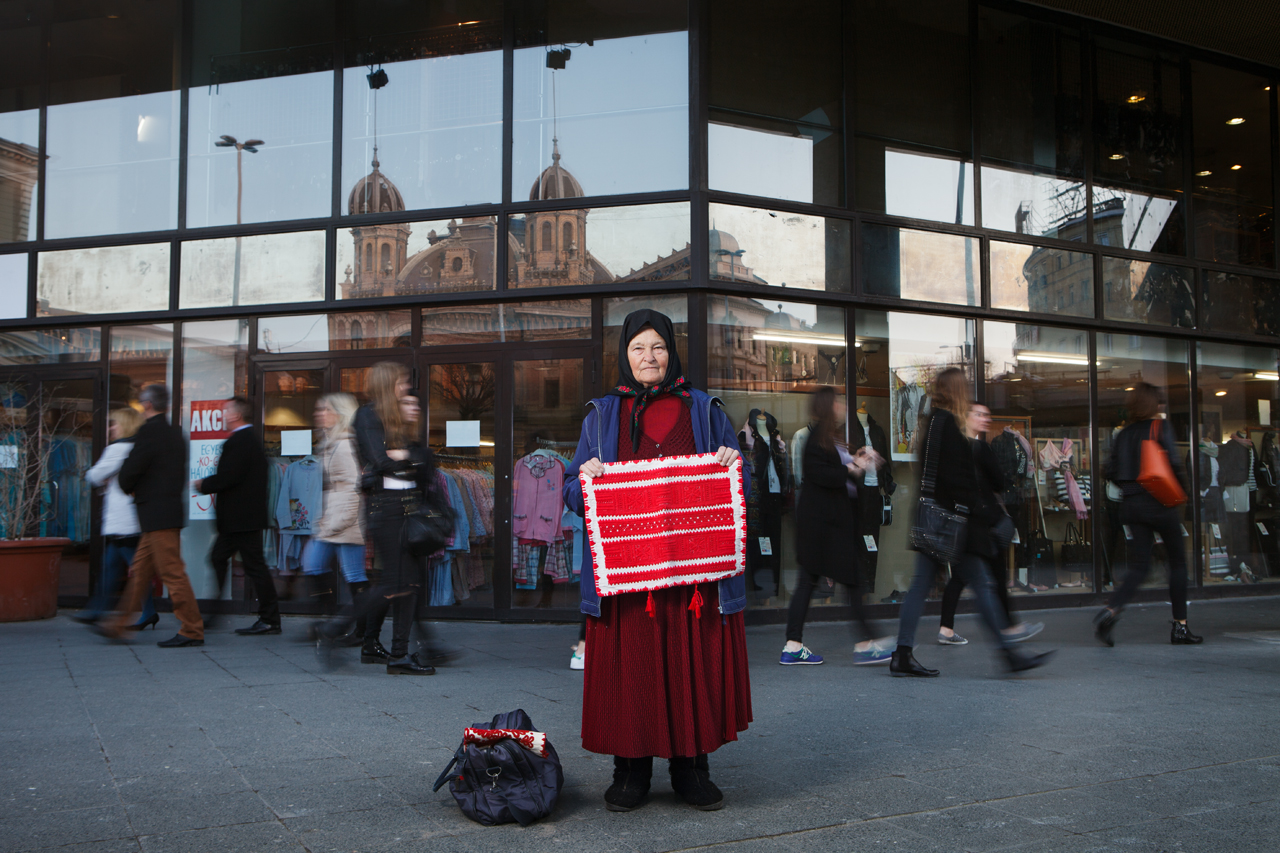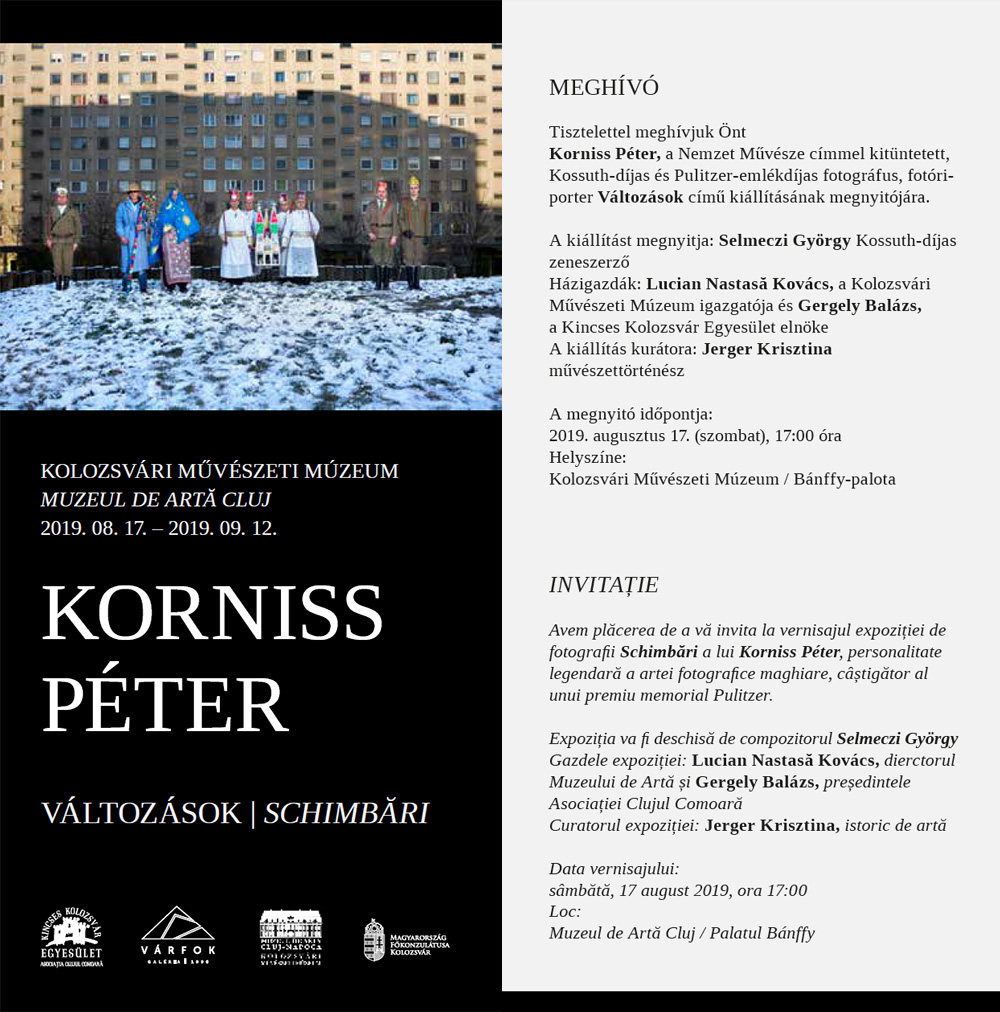Örömmel adunk hírt Korniss Péter következő egyéni kiállításáról, mely a Kolozsvári Magyar Napok keretében a Kolozsvári Művészeti Múzeumban kerül megrendezésre. A város központjában található Bánffy-palota ad otthont a Változások című kiállításnak, mely Korniss életművének legfontosabb sorozataira koncentrál. Az 1967-ben készült, az erdélyi Szék falu első táncházas képeitől az utóbbi évek konceptuálisnak tekinthető Erdélyi asszonyok Budapesten fotósorozatig (2014-17) elénk tárja a világ változásait. Bemutatja azt a konzekvens törekvést és tudatos alkotást, mely Korniss munkásságát 50 éve átfogja és teszi az egyik leghitelesebb fotográfiai életművek egyikévé.
A kiállítás a Kolozsvári Magyar Napok, a Kolozsvári Művészeti Múzeum és a budapesti Várfok Galéria együttműködésével valósul meg, kurátora: Jerger Krisztina művészettörténész.

We are delighted to announce the upcoming solo exhibition of Péter Korniss in the Art Museum in Cluj-Napoca (Romania). Within the framework of the Hungarian Cultural Days of Cluj Festival, this museum in the prestigious Bánffy Palace, will host the exhibition entitled ‘Transitions’ which is dedicated to the central motif of Korniss’s life work, the disappearance of traditional peasant culture in Eastern Europe. From his first photographs of the Transylvanian village, Sic, in 1967, to the most recent, somewhat conceptual series, ‘Guest Worker Women in Budapest’ (2014-17), a rich selection of his emblematic photographs will present the irreversible changes and signs of globalisation. ‘Transitions’ also underlines the consistent endeavour and conscientious work that have been integral to Korniss’ career for fifty years.
The exhibition is organized by the Hungarian Cultural Days of Cluj, the Art Museum in Cluj-Napoca in collaboration with the Várfok Gallery in Budapest. The curator of the exhibition is Krisztina Jerger, Art Historian.

Forrás: Várfok Galéria
